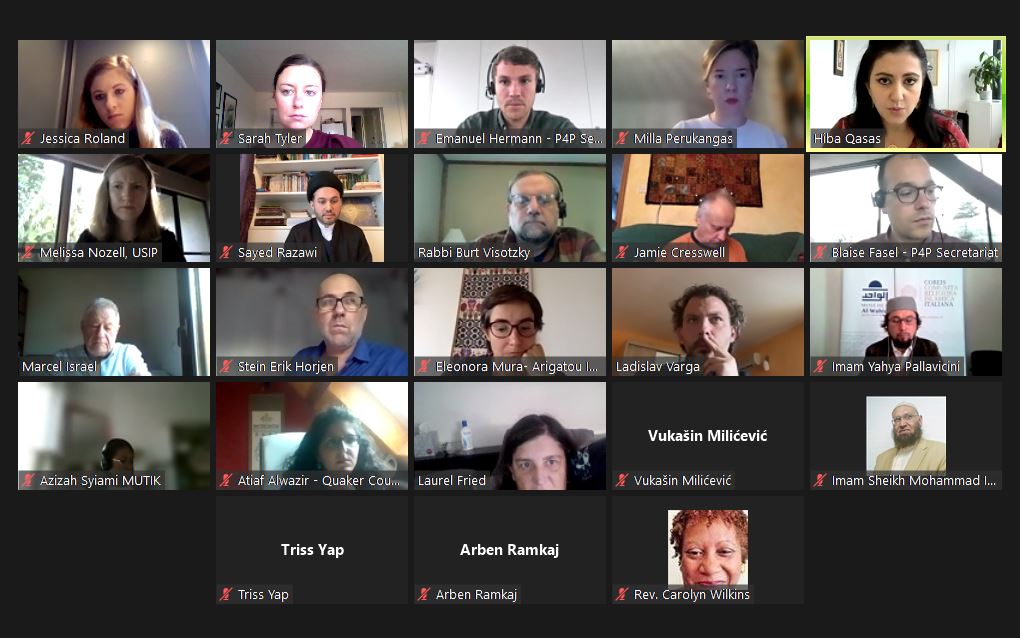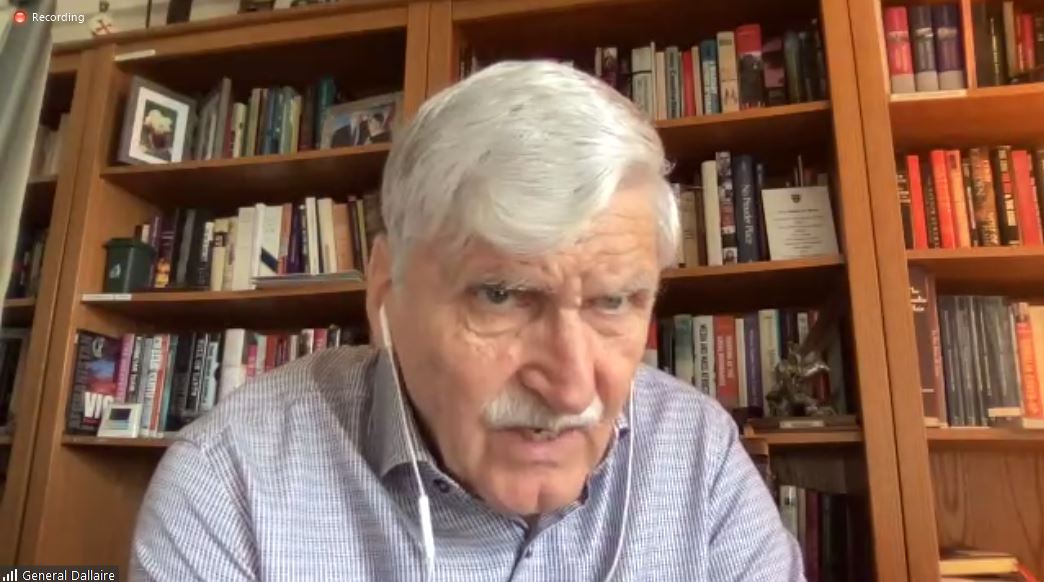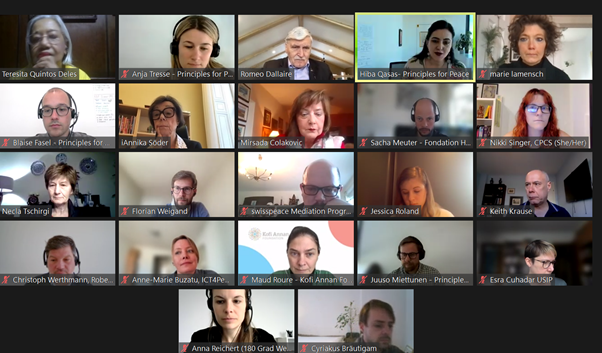On March 1, the Network joined the third convening of the Principles for Peace Stakeholder Platform with 45 other members present, to discuss joint findings and next steps towards framing a new frame of reference for peace. Principles for Peace is a global participatory initiative to develop a new set of principles, standards and norms that will fundamentally reshape how peace processes are structured, sequenced and actualized.
In support of the principle development, the Network held six consultations in five regions in local languages with over 111 individuals of faith. These individuals represented 49 countries total. Second round consultations with all stakeholder groups will be held May through July to validate the drafted principles.
Key Findings from the Principles for Peace Consultations
The concept of peace is not only the absence of war and physical stability, but harmony within oneself and within society – a spiritual, social, economic and physical peace.
Participants commonly recognized that achieving peace, whether it is physical, or a personal state of mind, is a long-term process that requires a whole-of-society approach.
We need constructive peace and not passive peace. It is something we are constantly working towards.
Participants commonly stressed that supporting sustainable peace begins with building trust and understanding the values and beliefs of others, while creating safe spaces for dialogue at all levels of society. It was nearly unanimously recognized that women and youth need to have a greater role in supporting sustainable peace.
The concept of being inclusive also extended to other communities and sectors of society, including: traditional communities; minority communities; civil society; the media; the private sector; victims of conflict, LGBTQ++, individuals with disabilities; and local and security groups.
Faith actors have a responsibility as connectors, mobilizers, and community educators to promote peace
Many faith actors from across the world expressed that they are ready, willing and able to locally support social cohesion efforts to promote peace. Faith actors are well positioned in supporting peaceful and inclusive messaging based on theology. Nearly every faith promotes similar ideals of tolerance, coexistence and mutual respect. Faith leaders can contextualize the theology of those messages to encourage their community to build peace – both spiritually and socially.
Participants recognized there are instances when faith actors serve as a hindrance instead of an asset. Examples were given such as: faith actors being politically instrumentalized; faith actors lacking connections to key stakeholders; and faith actors being held back by patriarchal structures and attitudes. As such, in order to achieve peace, we must strive to engage in dialogue with all actors to understand the challenges and devise solutions to achieve a holistic path forward to achieving sustainable peace and inclusive societies.
Key principles of peace that participants commonly raised, included the concepts of: humanity; dignity; equality; acceptance; inclusivity; harmony; tolerance; and understanding


About Principles for Peace
The Principles for Peace (P4P) is a global participatory initiative to develop a new set of principles, standards and norms that will fundamentally reshape how peace processes are structured, sequenced and actualized.
An international high-level Commission will lead a global, inclusive, bottom-up and top-down process to develop principles for the processes around achieving lasting peace. The approach will anchor the initiative in both realpolitik and real society and contribute to bridging the gap between peace processes and local needs and aspirations. It will leverage cutting edge research, participatory consultations and public engagement to fundamentally re-think and re-shape peace processes worldwide. Click here for additional information

